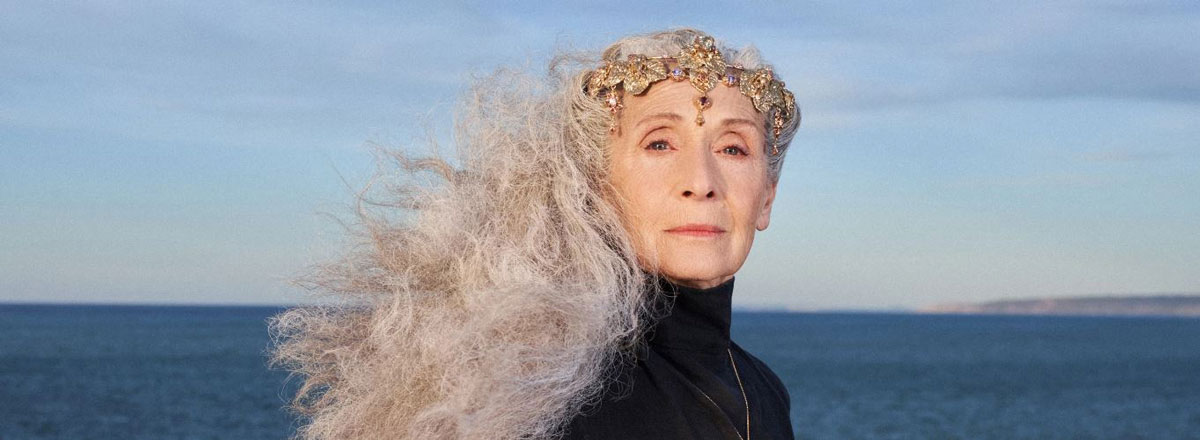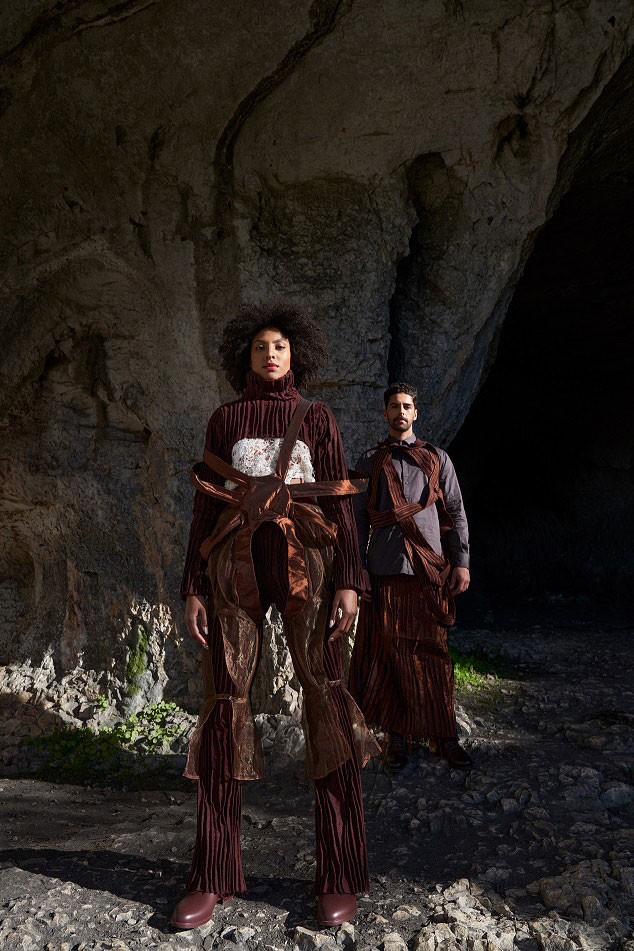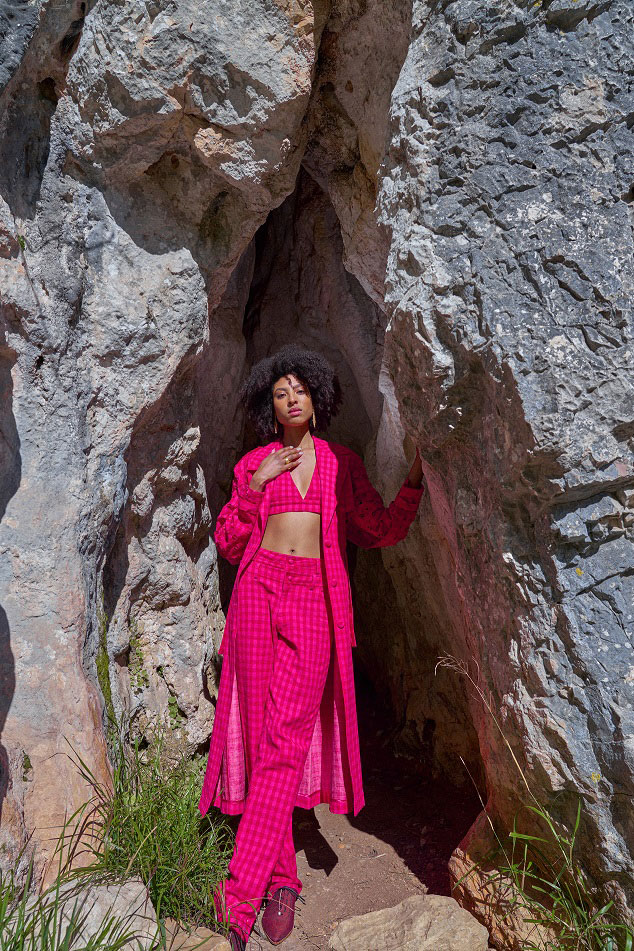Innovation, differentiation and sustainability distinguish the Portuguese textile offer on the international market. With a strong focus on Research and Development, Fileira Moda companies invest in an integrated offer where sustainability is a priority.
Customer-oriented, Fileira Moda companies invest in quality, innovation and design, and in the development of recyclable materials, with a focus on social, ethical and environmental responsibility, values represented in the MADE IN PORTUGAL naturally campaign, developed by AICEP – Agency for o Investment and Foreign Trade of Portugal.
There are several examples of companies with Portuguese DNA that distinguish the MADE IN PORTUGAL offer.
Salsa, founded in 1994, is an international reference and is present in 35 countries, assuming its commitment to people and the planet through the BECOME project. The brand’s commitment is based on the production of 100% better wash jeans – a washing process that allows an average of 58% less water to be used – by the end of 2023. Furthermore, the brand has signed the Portuguese Plastics Pact and is committed to eliminating 100% plastic in the denim chain. It should be noted that by the end of the year, they plan to eliminate at least 1.1 million plastic bags per year. With its eyes set on the future, Salsa anticipates the objective of carbon neutrality from 2050 to 2040, with the intermediate objective, defined by science, of reducing emissions by 66% by 2030.
In this context, Salsa also created the Infinity project, which provides for the infinite use of jeans, through repair, reuse and reuse. Pieces that are no longer available or are no longer used by the customer may be collected by the brand to be reused, transformed into other pieces or recycled.
Madalena Beça Têxtil Lda., which has been operating since 1998, focuses on weaving and manufacturing knitwear certified with the Global Organic Textile Standard (GOTS), Responsible Wool Standard (RWS) and the Global Recycled Standard (GRS). Since 2018, the Portuguese company has participated in the Fashion Revolution movement weeks. Specializing in organic, sustainable and recycled materials, it has been working with internationally award-winning brands, particularly in the baby clothing sector.
Innovation & Creativity, Sustainability and Industry 4.0. These are the pillars of FORTeams LAB, a company dedicated to producing sports merchandising (scarves and hats), as well as sports fashion lines (casualwear and gymwear). The company uses recycled raw materials, from the company’s textile waste and customers’ dead stocks, having created the LOOP project in this context. It also produces fashion accessories, such as backpacks, made from 100% recycled material. The company also created a sustainability department and aims to achieve carbon neutrality by 2030.
The Valérius 360 project, launched in 2017 by Valérius, aims to recycle textile waste collected within and outside the group. The 360 project aims to implement a circular fashion model. It is co-creating take-back programs for post-consumer clothing to be recycled at Valérius 360. The initiative has already been behind the production of a new, sustainable capsule collection, made from 50% organic cotton and 50% recycled cotton from post-consumer waste, with the raw material being produced entirely in the company in A Sustentabilidade do Têxtil Português.
Founded in 1982, Pedrosa & Rodrigues incorporates recycled, biodegradable, eco-friendly raw materials in its production and with special finishes. Furthermore, the company is part of CITEVE’s iTechStyle GreenCircle project. Pedrosa & Rodrigues presented an innovation called closed-loop, where waste from the brand’s previous collections (a minimum of 20%) is included in new pieces. This is how the CIRCLO project was born.
Confetil, which sees itself as a “textile company that transforms any idea into a high-quality fashion product”, has Portuguese DNA and is sustainable. All of the company’s activities are aligned with the United Nations Sustainable Development Goals (SDGs), in particular, SDG 8 – decent work and economic growth, SDG 12 – responsible consumption and production, SDG 13 – climate action, and SDG 17 – partnerships with government and civil society.
These and other companies can be found in the directory
Follow us on Facebook, Twitter, Instagram, Youtube, and TikTok and see the exclusive content for social networks.








